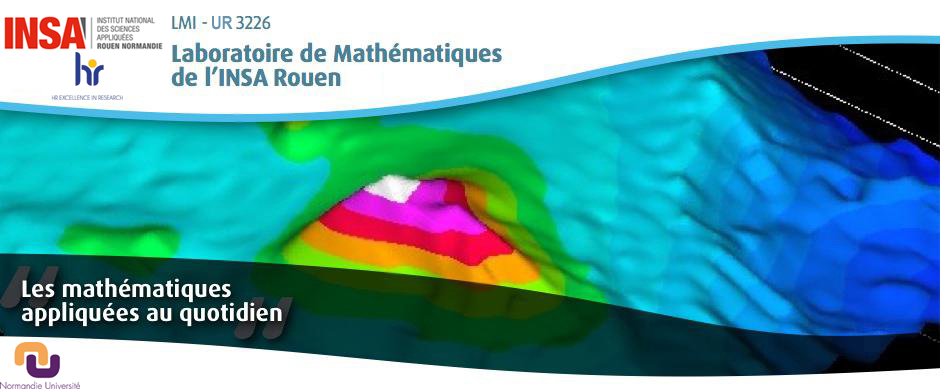Workshop/Conference
8th Rouen Math Modelling and Numerical Simulations
8ièmes Journées
Modélisation Mathématique et Simulation Numérique pour
le traitement d'image, l'énergie, le développement durable et la morphodynamique côtière.

![]()
Avec le soutien de :
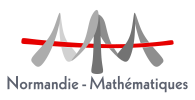 |
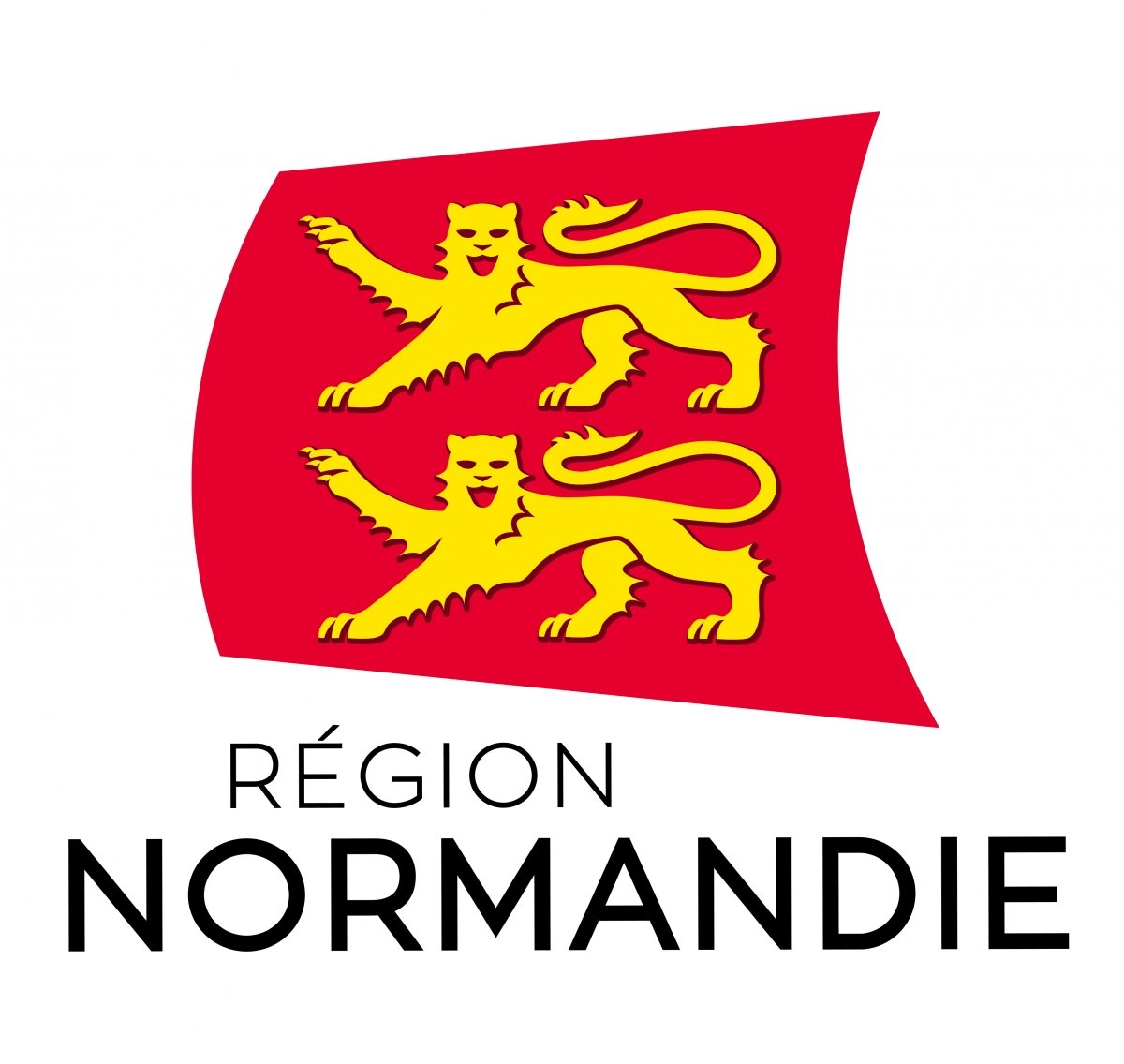 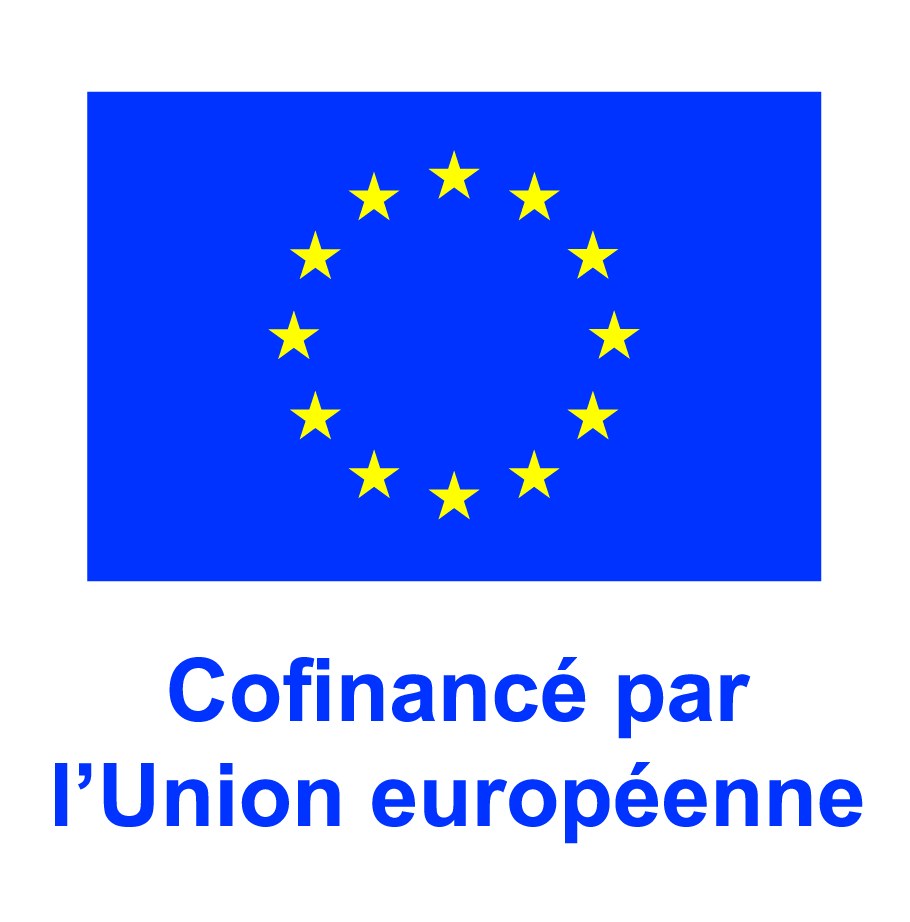 |
  |
|
FR CNRS 3335 |
Projet DEFHY3GEO |
Projet Scale Op |
Organisation :
![]()
![]()
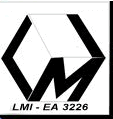

Christian Gout (LMI et AMIES/Energie) et David Manceau (LMAH).
- Date : 5 décembre 2024 - A partir de 14h15
- Salle : MA.J.R1.01 (ancienne salle du conseil, 1er étage, au dessus Hall Magellan)
- Programme :
Cinq conférences plénières - orateurs :14h15 - Diane CHAN SOCK LINE (LMI, INSA Rouen Normandie) - MEDISEG14h45 - Théau COUSIN (SCALE Op, Siemens Gamesa Renewable Energy et INSA Rouen Normandie) - SCALE OP15h15 - Sophie MICHEL (LMAH, Université Le Havre Normandie)Pause 15'16h00 - Georges SADAKA (LMRS, CNRS et Université de Rouen Normandie)16H30 - Antoine TONNOIR (LMI, INSA Rouen Normandie) - DEFHY3GEOpuis échanges sur les projets DEFHY3GEO, SCALE OP, MEDISEG (avec A. Leclerc, G. Khayretdinova).Titres et résumés:
On a Hybrid Joint Segmentation/Multimodal Registration Model via Finite Distortion Mappings and Coordinate Multi-Layer Perceptron
Diane CHAN SOCK LINE (LMI, INSA Rouen Normandie) - ANR MEDISEG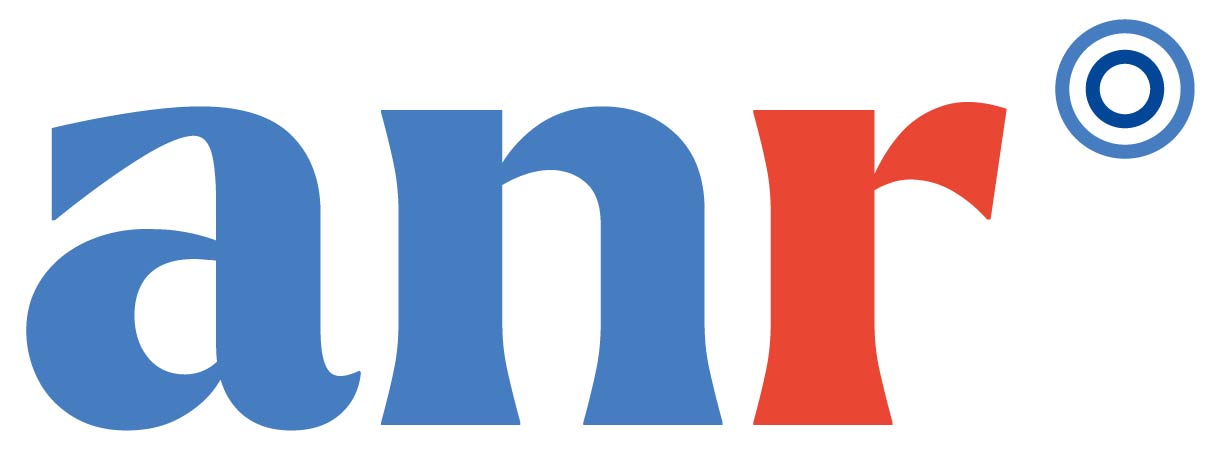
Image segmentation and registration are pivotal preliminary steps in medical image analysis, which exhibit a dual nature. As such, intertwining them in a unified framework sounds natural: besides reducing uncertainty propagation, it yields positive mutual influence. Registration compensates for weak boundary definition, encodes intrinsic topological requirements like the preservation of contextual relations between objects, and may help when the anatomical requirement is not reflected in the data. In return, accurate segmented structures foster relevant registration, breeding reliable estimations of the deformation pairing the encoded structures. These observations underpin the proposed contribution: in a hybrid hyperelastic framework blending variational techniques (for the versatility/adaptability/interpretability they offer) and deep-learning-based approaches (more proficient at learning intricate characteristics and at handling computationally intensive tasks) through coordinate Multi-Layer Perceptron (MLP), an unsupervised pairwise joint segmentation/registration 2D model is introduced. By working in the class of mappings with finite distortion, one theoretically guarantees that the engendered deformation is a homeomorphism. Also, combining a directional-total-variation-based term promoting gradient alignment with the segmentation task, viewed as a substitute for classical intensity-based data terms in registration, enlarges the scope of applications to multimodal images.
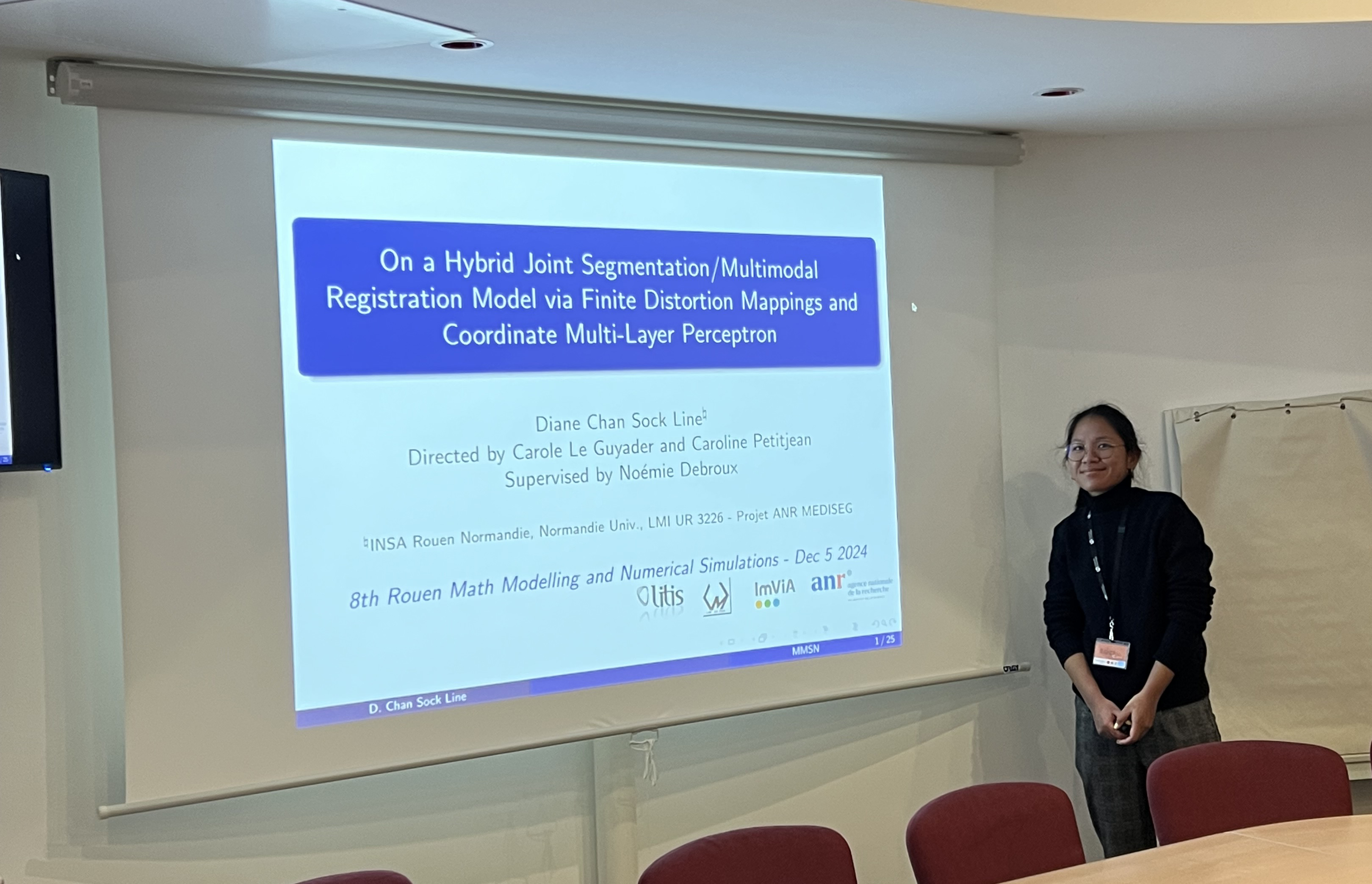
Diane CHAN SOCK LINEWind field reconstruction based on LiDAR measurements
Théau COUSIN (LMI, INSA Rouen Normandie) - Projet I-démo SCALE OP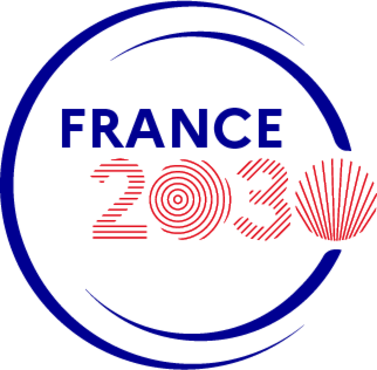




This work is a collaboration between the LMI and Siemens Gamesa Renewable Energy (wind energy industry). The purpose is to reconstruct a wind field based on on-site measurements (sparse LiDAR data) by solving a convex optimization problem with a finite element method. The global aim is to compute the precise loads that a wind turbine would experience based on actual terrain conditions.
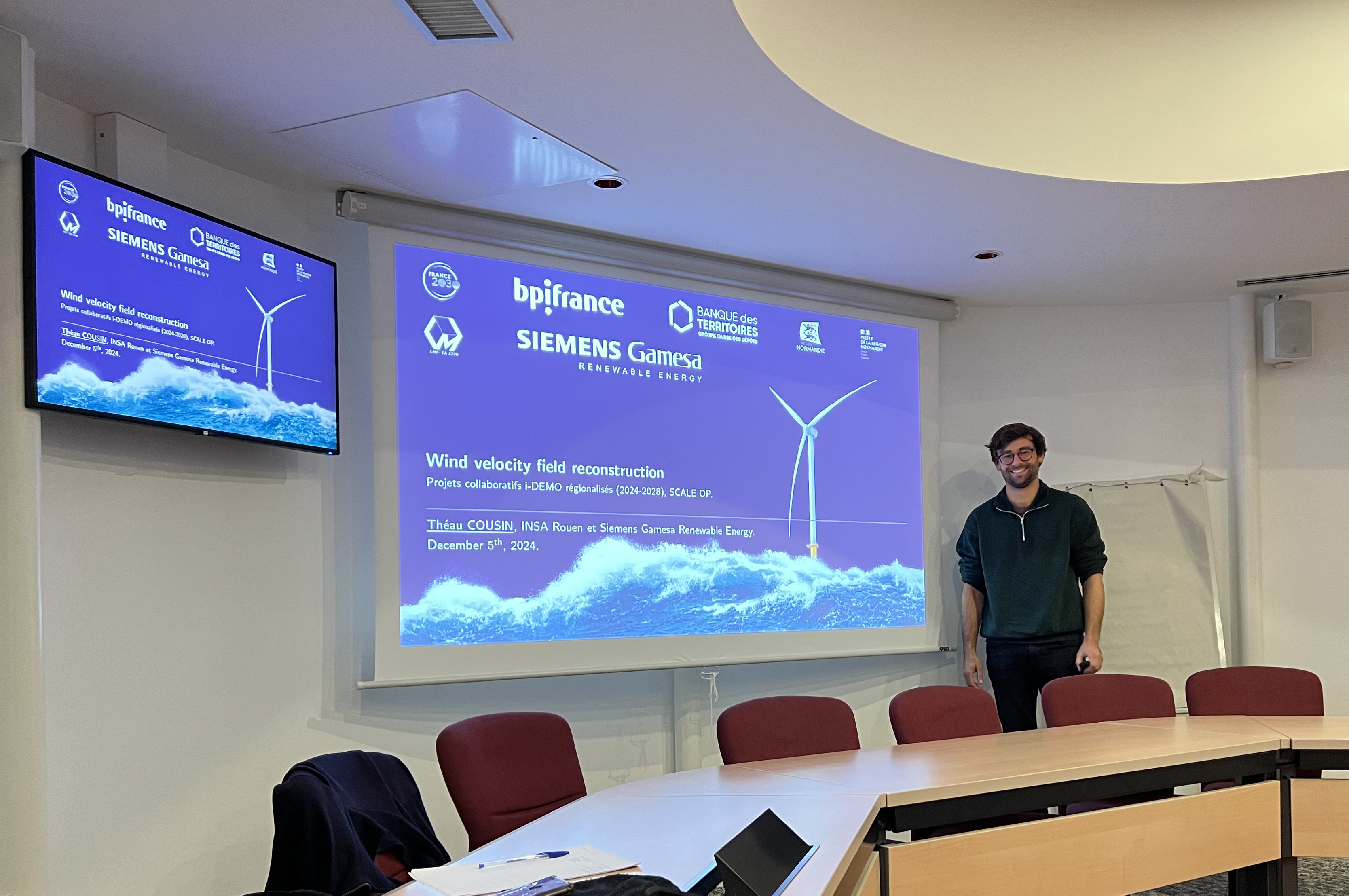
Théau COUSINHeuristic for mixed-integer linear mathematical programs
Sophie MICHEL (LMAH, Université Le Havre Normandie)The Restrict-and-Fix heuristic can be seen as a generalization of the Relax-and-Fix heuristic: a sequence of derived subproblems is solved, progressively fixing variables in the original problem. The solution can be improved by the generic local search Fix-and-Optimize. The proposed implementation is generic and adaptable for various classes of problems: lot-sizing, vehicle routing, bin packing, portofolio... Results on problems in the maritime context show the competitiveness of Restrict-and-Fix, especially on large instances.
Numerical simulations done with FreeFem++Georges SADAKA (CNRS et LMRS, UniRouen)FreeFem++ est un logiciel libre qui permet de résoudre numériquement des équations aux dérivées partielles par éléments finis. Dernièrement, des outils ont été ajoutés pour effectuer également des volumes finis. Mon exposé vise à vous présenter des simulations numériques que j'ai effectué avec FreeFem++ et d’essayer de vous convertir avec l'utilisation de ce logiciel en vous présentant quelques exemples de programmation réalisées avec ce logiciel.
Les simulations numériques que j'ai réalisées sur les différentes applications suivantes seront également présentées :
- changement de phase solide liquide avec de la convection naturelle (application à la fusion de la paraffine et à la solidification de l’eau)
- écoulement sanguin dans les artères et la maladie d’athérosclérose
- génération propagation et inondation des ondes de Tsunami
- modélisation des ondes aquatiques
- transports des sédiments et rupture de barrage
- couplage entre les éléments finis et les volumes finis
- modélisation de l’équation de Schrödinger non linéaire et son analyse de stabilité
- identifications des vortex dans les fluides quantiques
- problème inverse et application à l’imagerie électrique du sous-sol
- problème inverse et application à l’identification des points sources des polluants et de leur intensité dans l’eau souterraine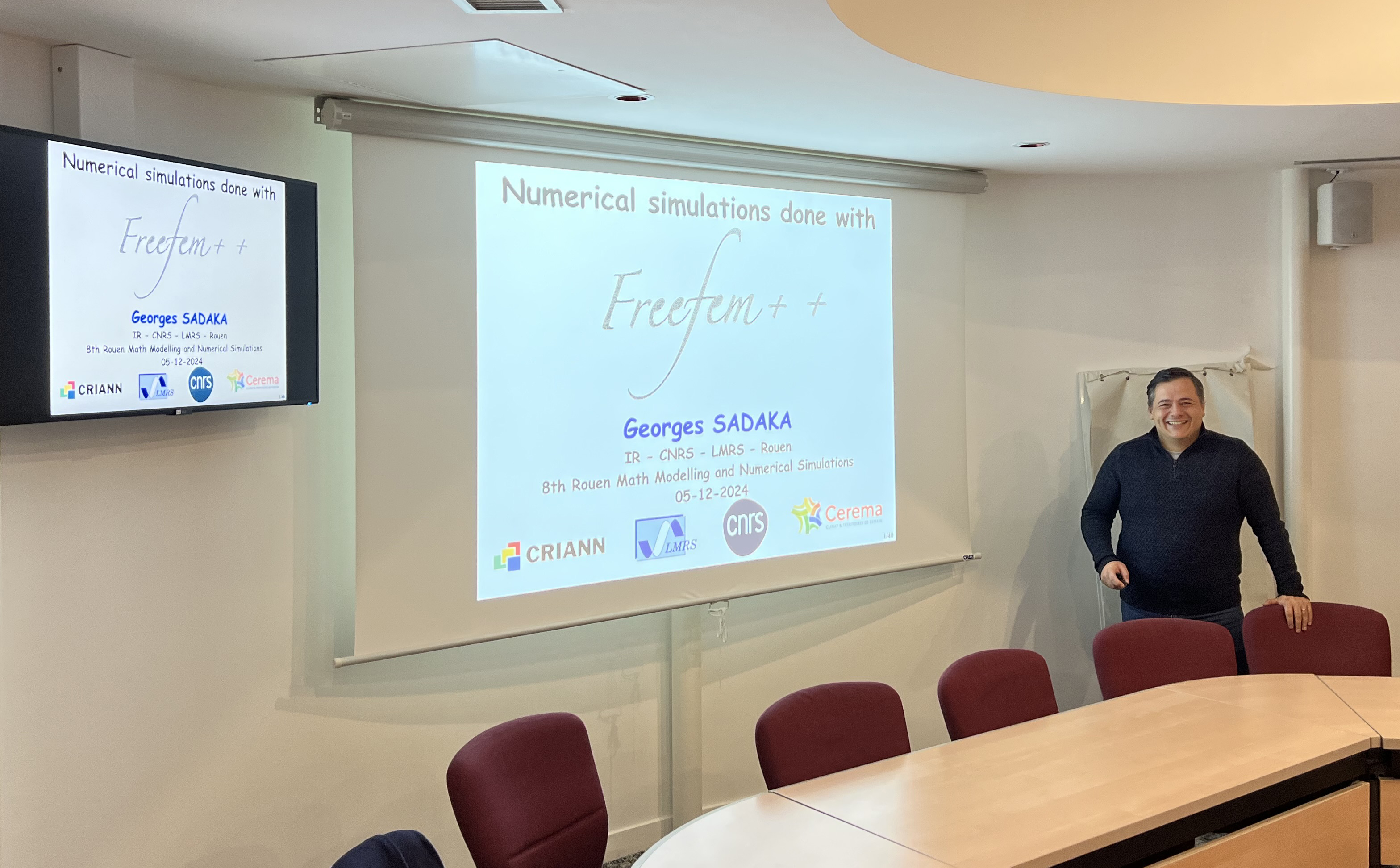
Georges SADAKA
Combining reciprocity gap method and state estimator for source identification in an advection-diffusion equationAntoine TONNOIR (LMI, INSA Rouen Normandie) - Projet DEFHY3GEO
 This work is motivated by the identification of source pollutant in a river. The mathematical model corresponds to a point source (Dirac source term) in an advection diffusion equation. Given downstream measurements of the pollutant (partial boundary measurement), the purpose is to recover the source position. The methodology we propose is based on the reciprocity gap method. We explain how to get an on-line monitoring algorithm. Also, to accelerate the identification process, we propose a cheap state estimator. Several numerical results will be presented to assess the method.
This work is motivated by the identification of source pollutant in a river. The mathematical model corresponds to a point source (Dirac source term) in an advection diffusion equation. Given downstream measurements of the pollutant (partial boundary measurement), the purpose is to recover the source position. The methodology we propose is based on the reciprocity gap method. We explain how to get an on-line monitoring algorithm. Also, to accelerate the identification process, we propose a cheap state estimator. Several numerical results will be presented to assess the method.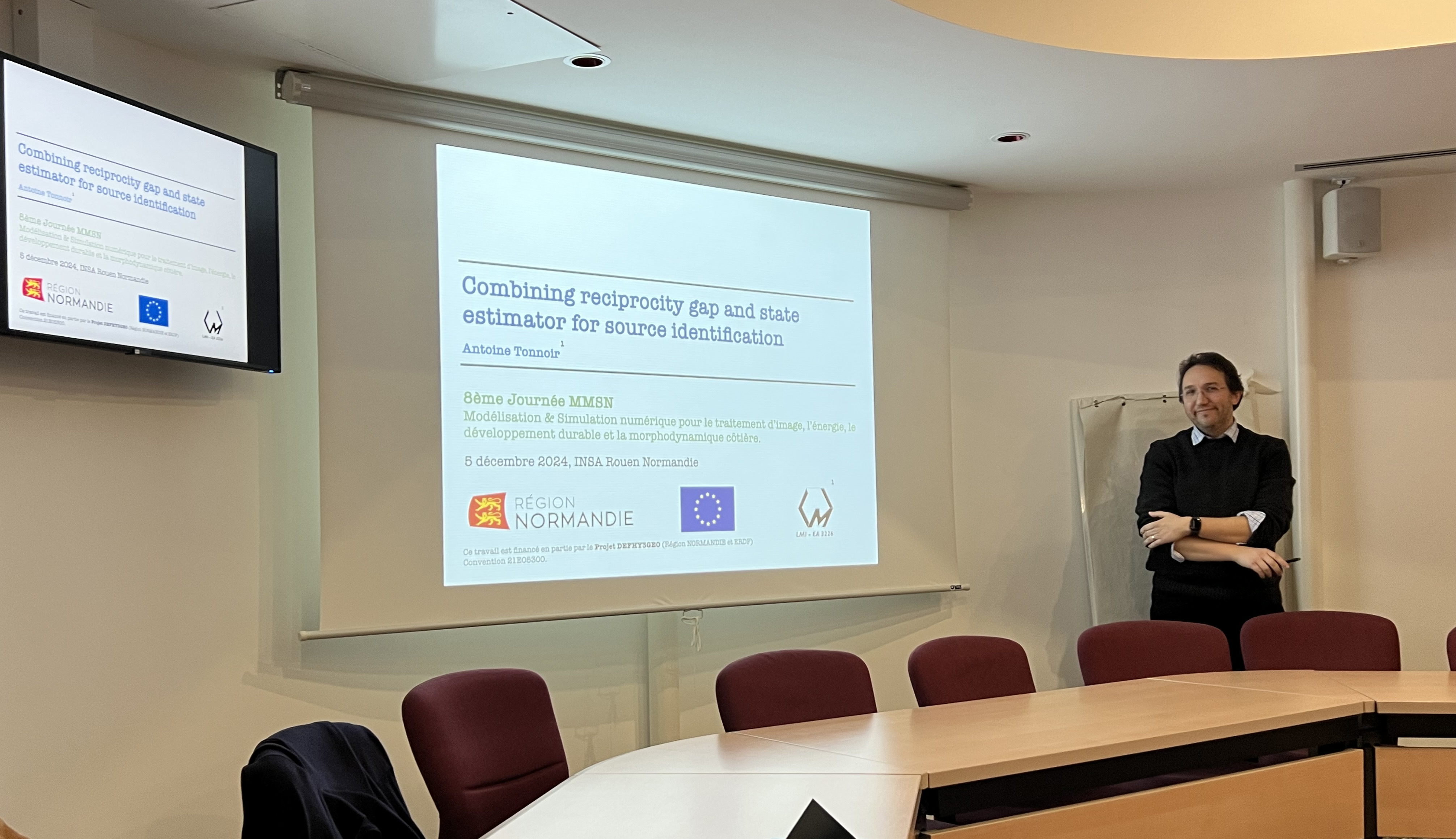
Antoine TONNOIR - Location: Rouen INSA - 685 Av. de l'Université, 76800 St Etienne du Rouvray
Christian Gout - 2024
